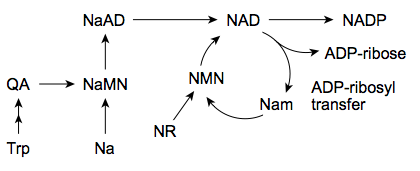I just wanted to update. I got a body composition test and I gained 1.6 lbs of skeletal muscle, lost 1.5 lbs of body fat mass and lost anywhere from 1 to 5 inches (most closer to 1 inch) on various places on my body with no drastic change in diet or exercise routine. This was over a 2 month time period.
I am actually now starting to distinctly notice vision improvement. Most notably is my night vision and sensitivity to light. Rooms that used to not seem so bright are really bright. When I am driving at night, all the lights from the cars, street lights and buildings seem much sharper; the colored lights are more colorful and brighter. It is actually very beautiful to drive at night now. My eyes pick up light very well in dark rooms and there is almost no recovery time necessary when switching from light to dark and vice versa. I don't get that blinding and painful reaction I used to when a the light gets turned on in a dark room that I had been in for a while. I also noticed my glasses and contacts are becoming too strong and I my need to go get a new prescription very soon. If these changes keep progressing the way they are I may not need glasses at all! I like to note that just last week I started eating carrots regularly, so I am thinking that my improved mitochondrial health from Niagen is allowing my body to use the beta carotene from the carrots more effectively which could be contributing to the sudden changes in vision? I really don't know why this is happening but it is happening. I did notice some improvement prior to the carrots but it has been more drastic since I started eating them.
In addition to taking Niagen, I am also taking a supplement with the polyphenol, pterostilbene, so this could be contributing to my reaction.
You do know that the eating carrots thing to improve your vision is a myth, it was perpetuated by our UK government during WW11 dont you...There is no evidence whatsoever that carrots inmprove your vision... 
http://health.howstu...s-eyesight.html
Are carrots really good for your eyesight?
by Sarah Winkler

If you ate all these carrots, would you be able to see through walls?
To ease kids' suspicion of vegetables, parents often feed them the adage that carrots will spare them from corrective vision care. But is there any truth to the commonly held belief that carrots are good for your eyes?
Well, yes and no. Carrots won't improve your visual acuity if you have less than perfect vision. For example, a diet of carrots won't give a blind person 20/20 vision. But the vitamins found in the vegetable can help promote overall eye health. Carrots contain beta-carotene, a substance that the body converts to vitamin A, an important nutrient for eye health.
For centuries, carrots have been connected with health benefits. In the Middle Ages, carrots were believed to cure anything from sexually transmitted diseases to snakebites [source:Kruszelnicki]. Carrots became associated with vision, particularly night vision, during World War II. The British Royal Air Force published a story that said skilled fighter pilot John "Cats' Eyes" Cunningham could thank a steady diet of carrots for his night vision flying prowess. In response to the story, many British people began to grow and eat more carrots. They wanted to improve their vision so that they could see better during the compulsory blackouts that were common during World War II. Although Cats' Eyes' carrot eating made for a great story, it was, in fact, propaganda put out to conceal the fact that the Royal Air Force's was actually using radar to locate Luftwaffe bombers during the night [source: Kruszelnicki].
Although British propaganda may have lent carrots a bit more vision-related cachet than they deserve, there's still no doubt that the vitamins found in carrots can promote overall eye health. How do carrots help your eyes?
Carrots are rich in beta-carotene, a carotenoid pigment found in many orange fruits and vegetables. Beta-carotene is an important precursor for vitamin A. An extreme lack of vitamin A can cause blindness. In fact, in the developing world, vitamin A deficiency is the leading cause of blindness [source: Web MD].
Lack of vitamin A can also lead to xerophthalmia, a condition in which the eyes can no longer produce tears, dryness in the eyes, swollen eyelids and corneal ulcers. Vitamin A can prevent the formation of cataracts and macular degeneration, the world's leading cause of blindness [source: All About Vision]. However, if your vision problems aren't related to vitamin A, your vision won't change no matter how many carrots you eat.
Carrots aren't the only vegetable that contain the essential beta-carotene that can help your eyes. Other orange-colored foods, such as sweet potatoes, mango, pumpkins, apricots and cantaloupe, are also sources of beta-carotene. This nutrient can also be found in dairy products like milk and cheese as well as egg yolks and liver.
But watch how much beta-carotene-rich fruits and veggies you eat. Since beta-carotene is a pigment, your skin might become orange. Although this likely is harmless, if it happens to you, you might want to consult a health care professional to make sure you're consuming a balanced diet.
In addition to beta-carotene, carrots also contain lutein, an antioxidant. Foods rich in lutein have been found to increase pigment density in the macula, the oval-shaped yellow area near the retina of the eye. The greater the pigment density in the macula, the better protected your retina is and the lower your risk for macular degeneration. In addition to carrots, spinach, kale, Swiss card and dark, leafy greens also contain lutein.

































 This topic is locked
This topic is locked



























